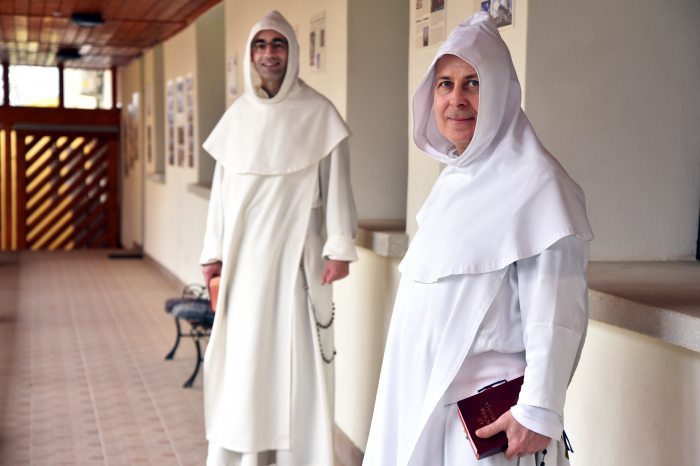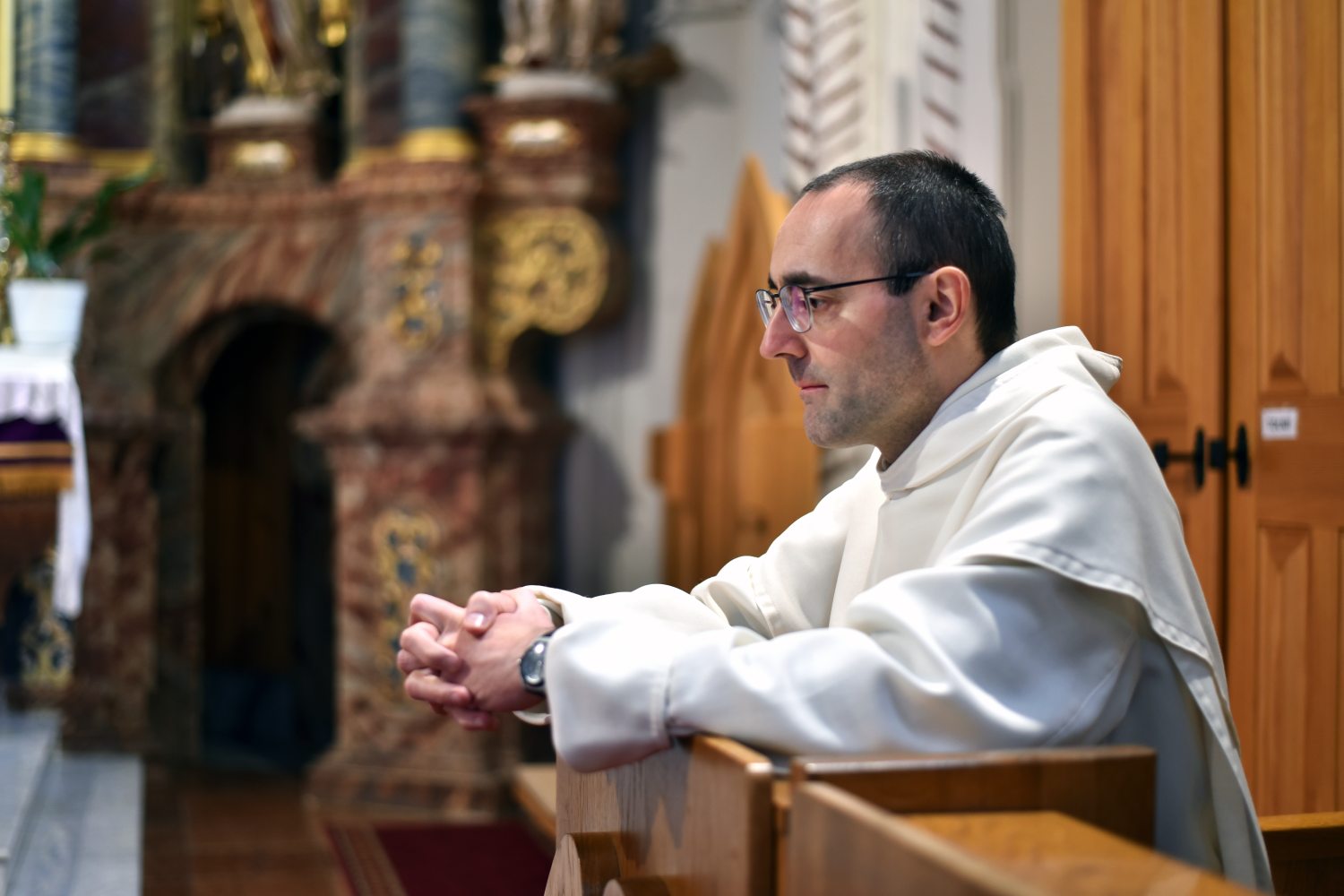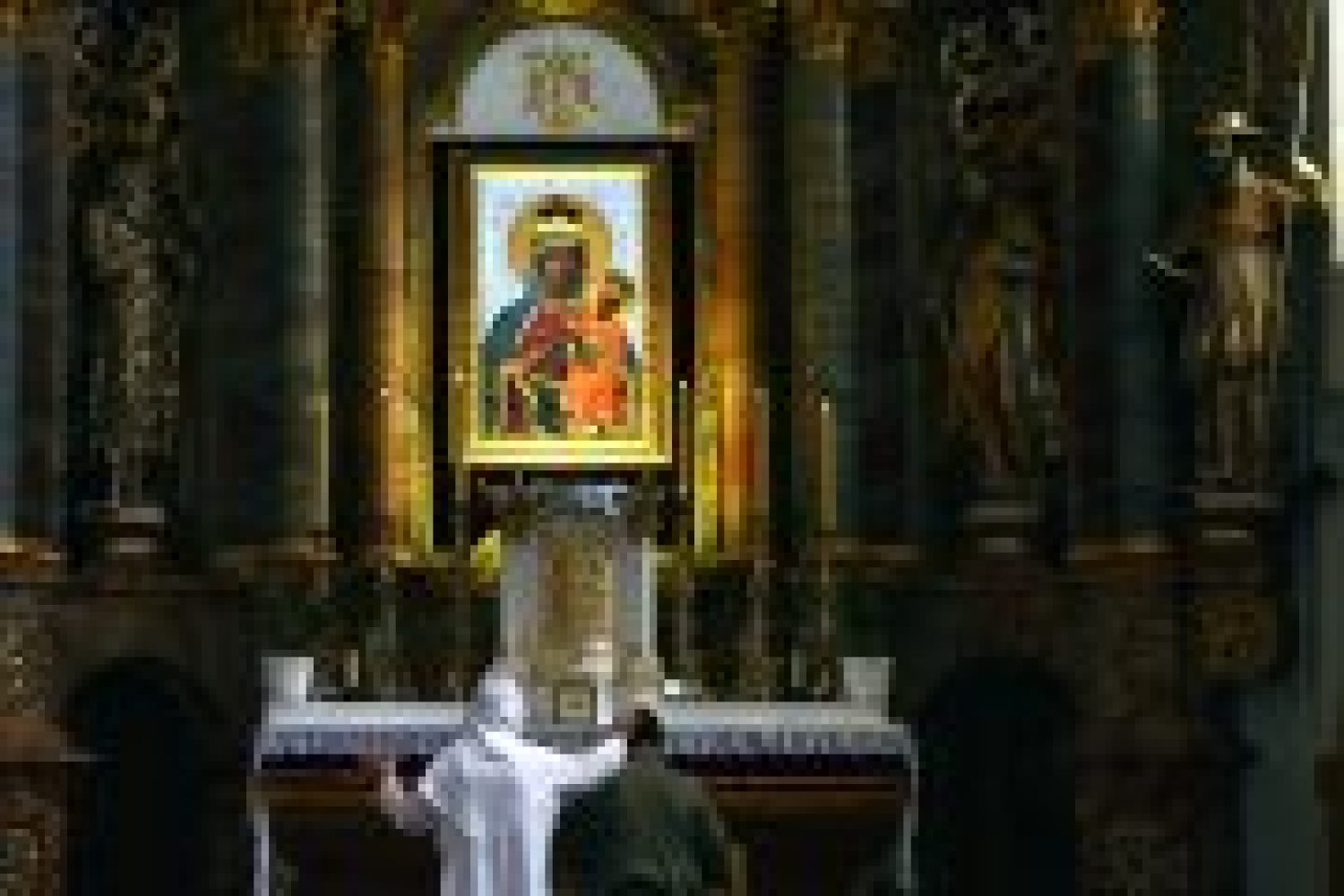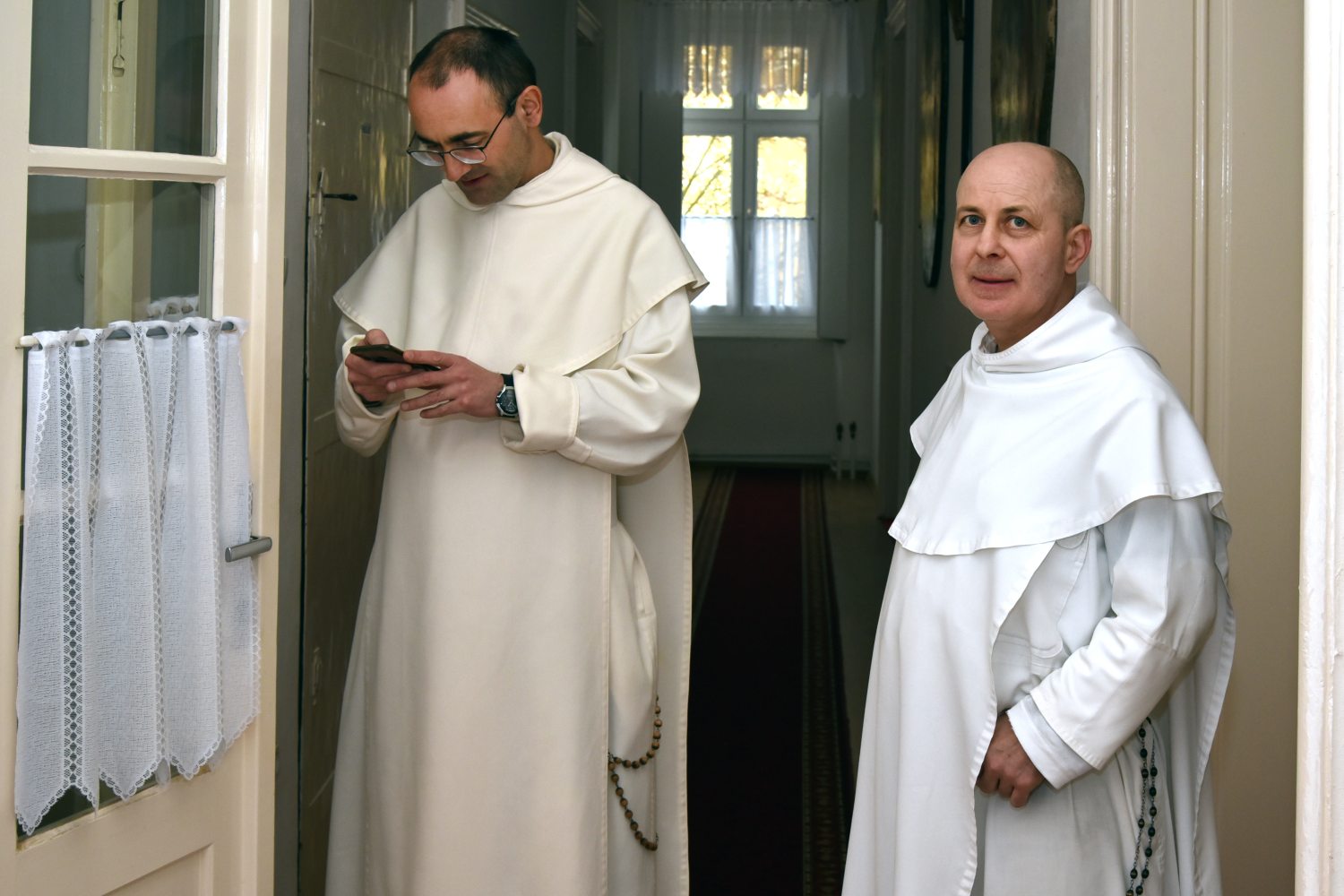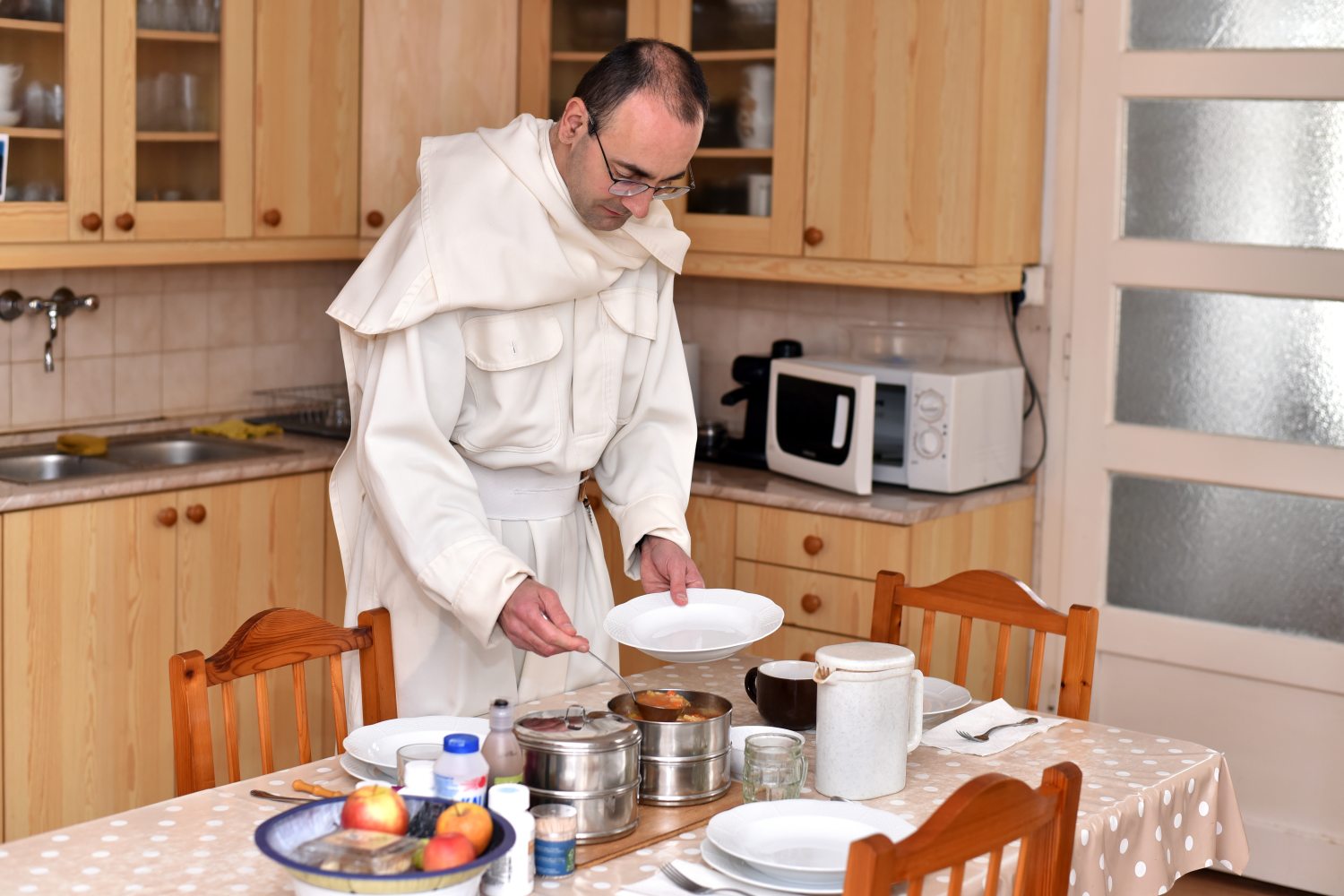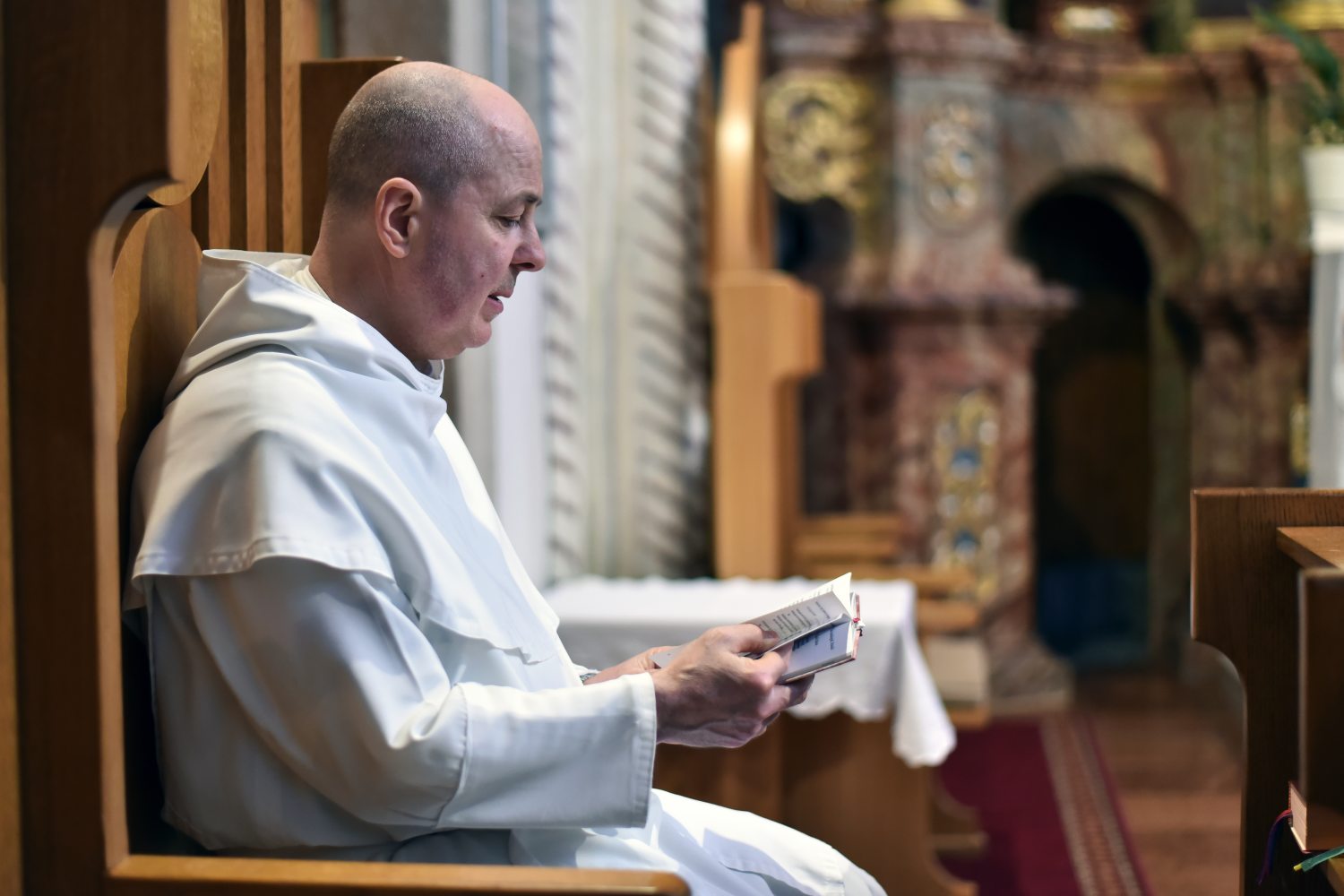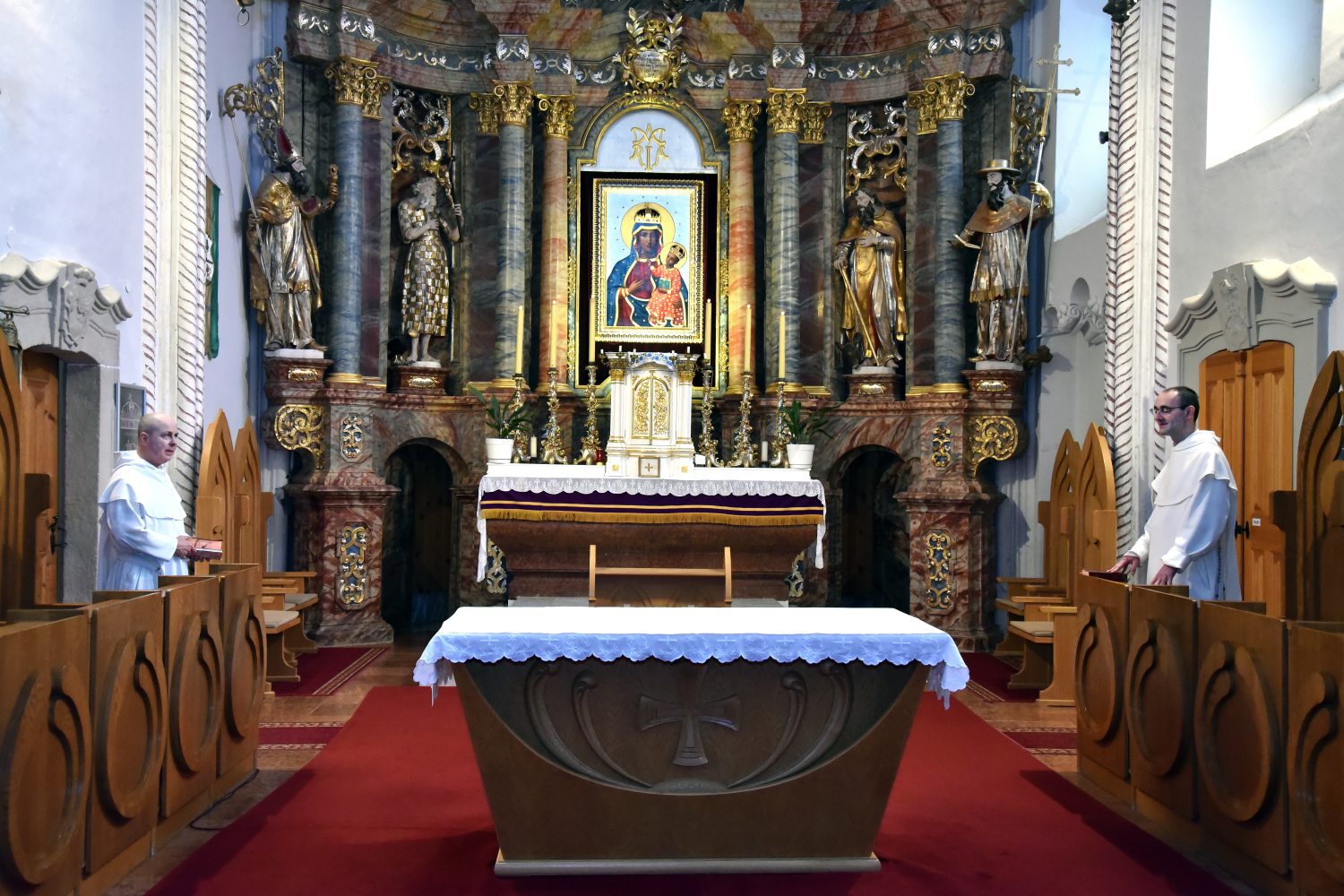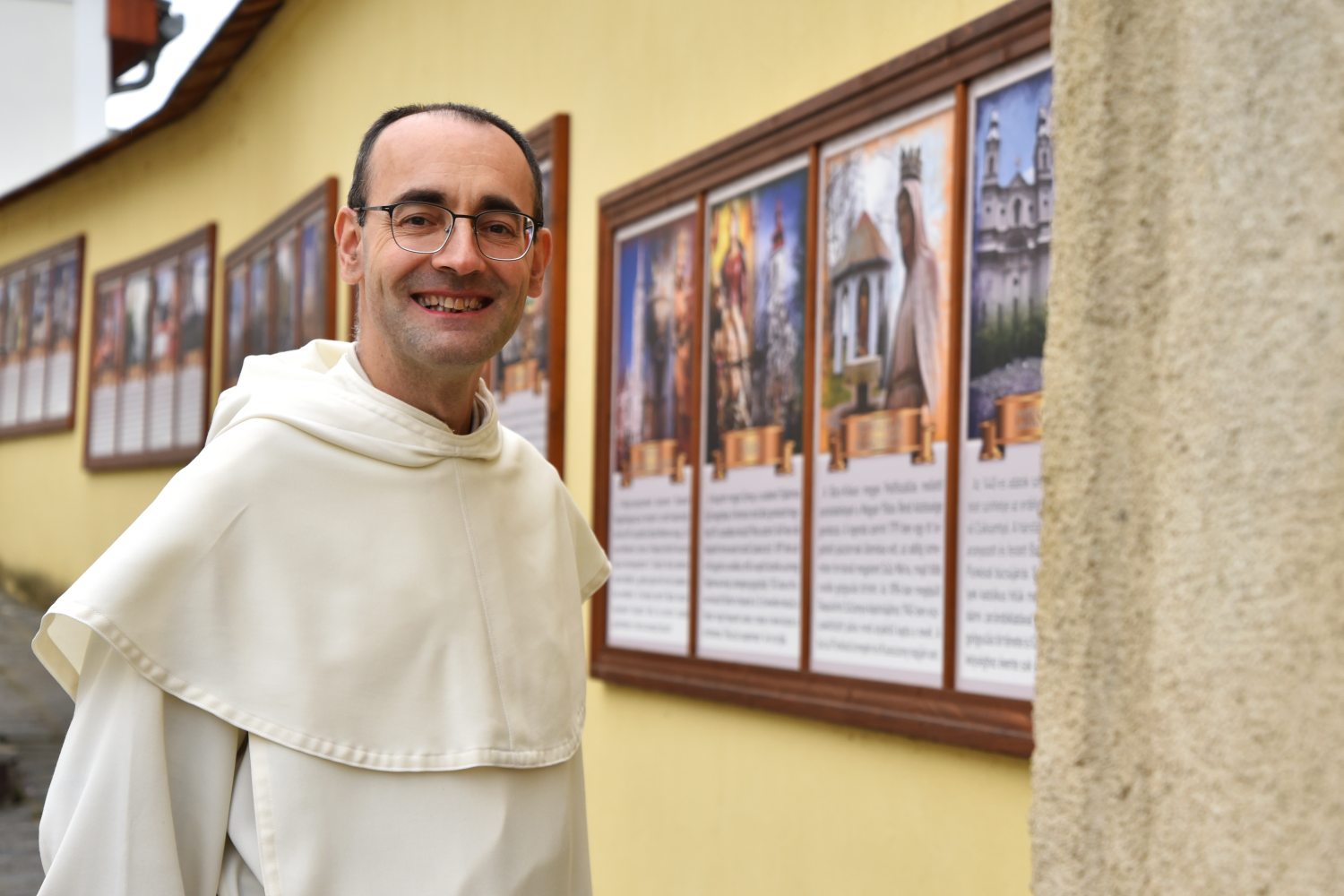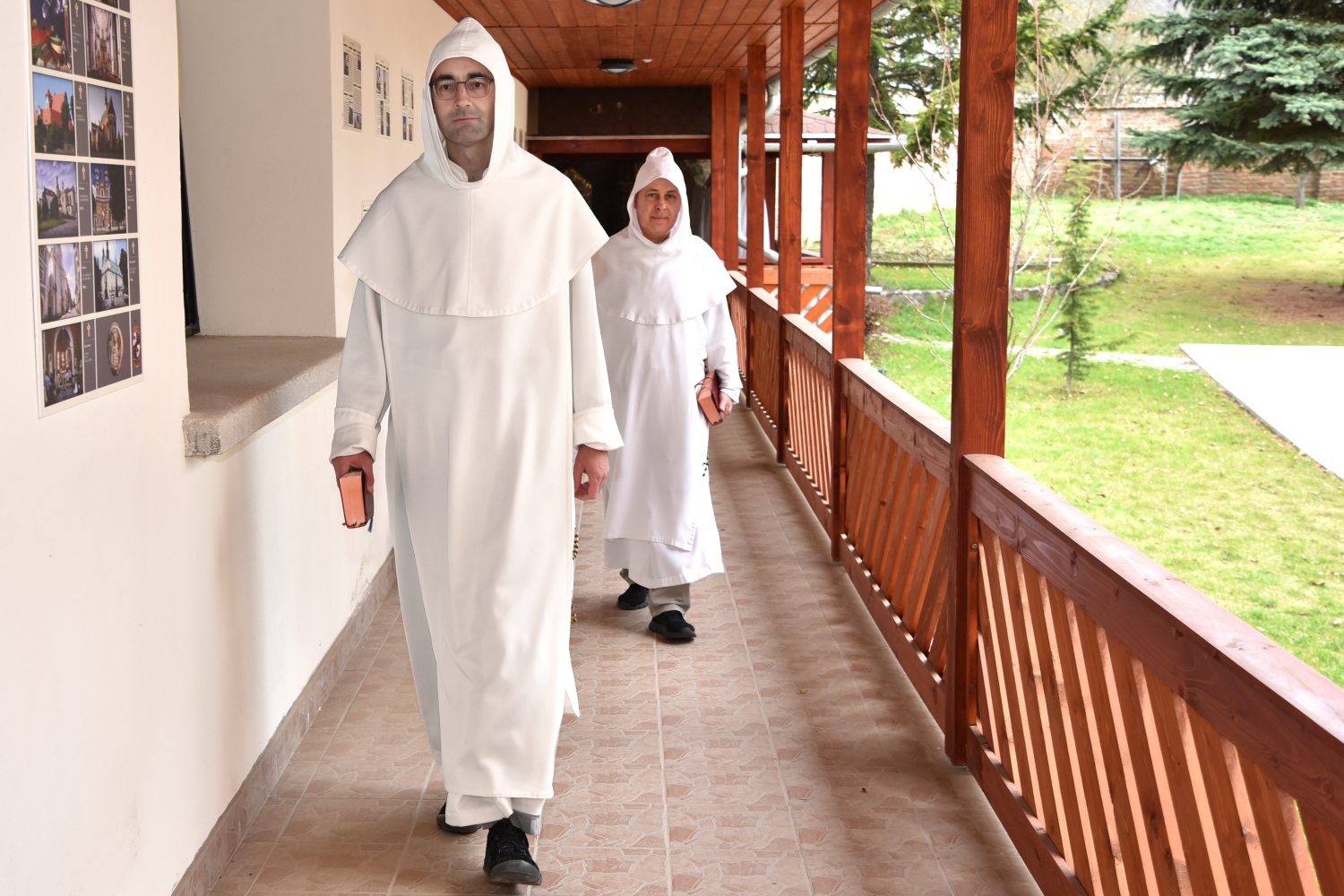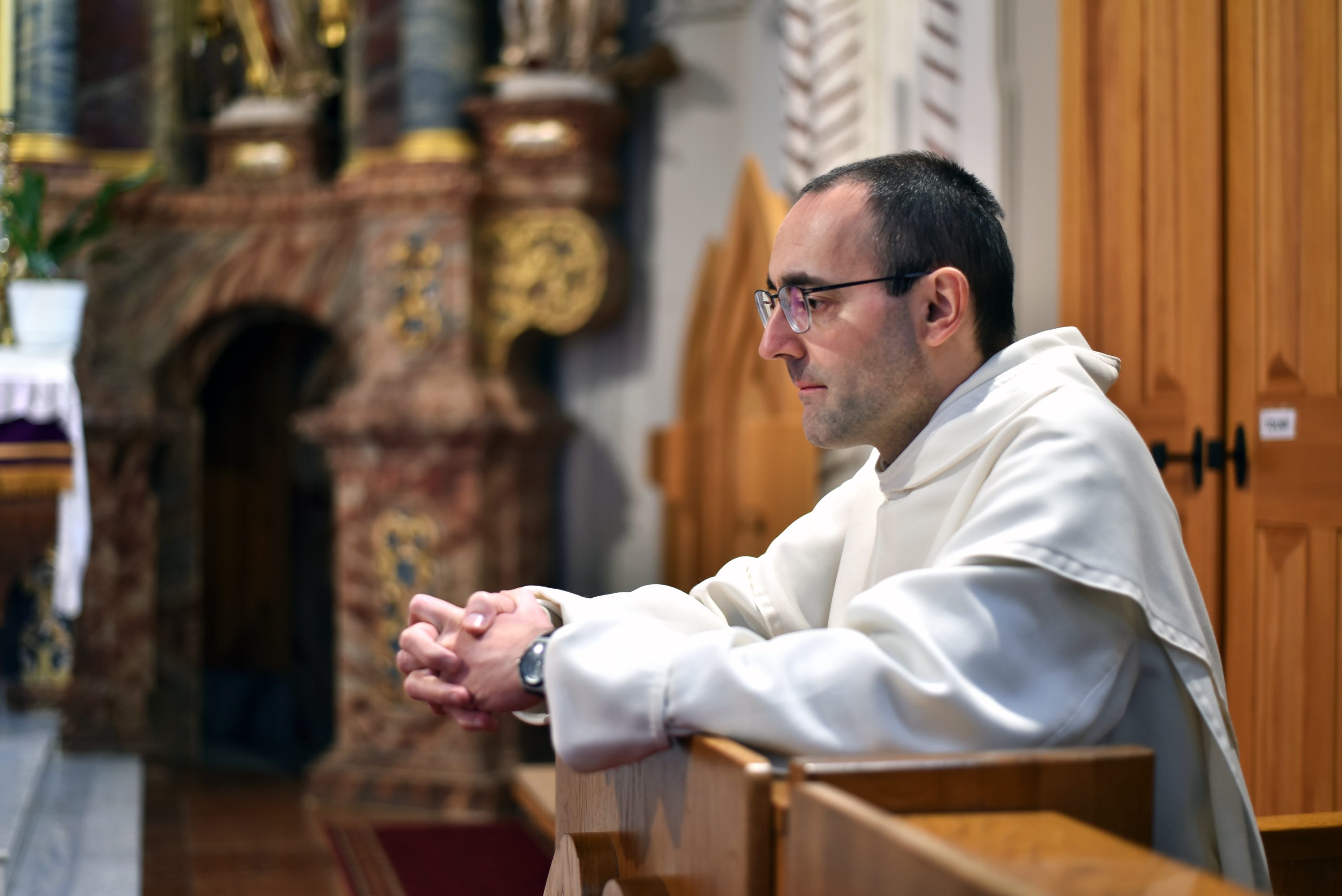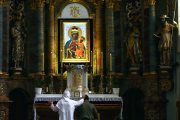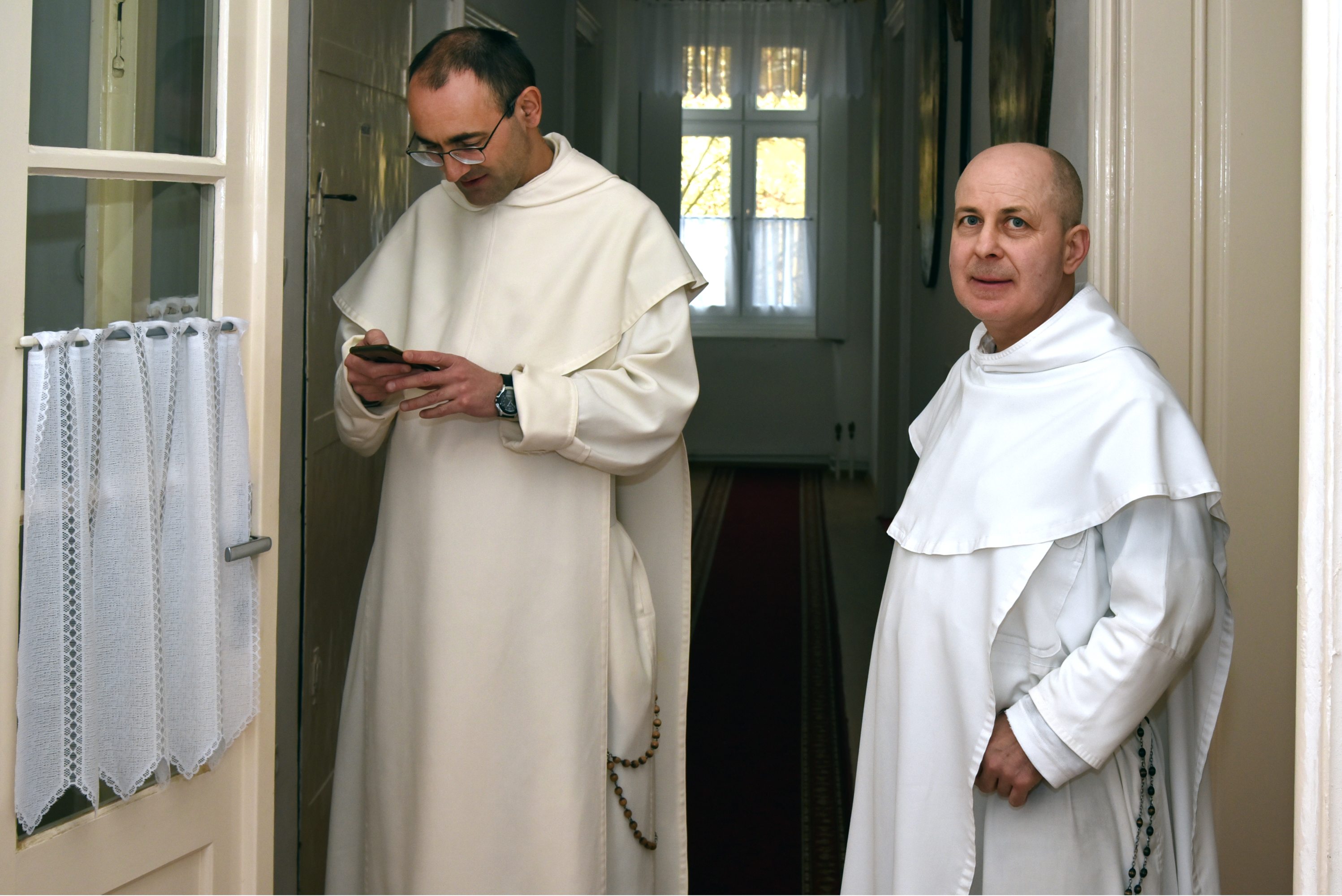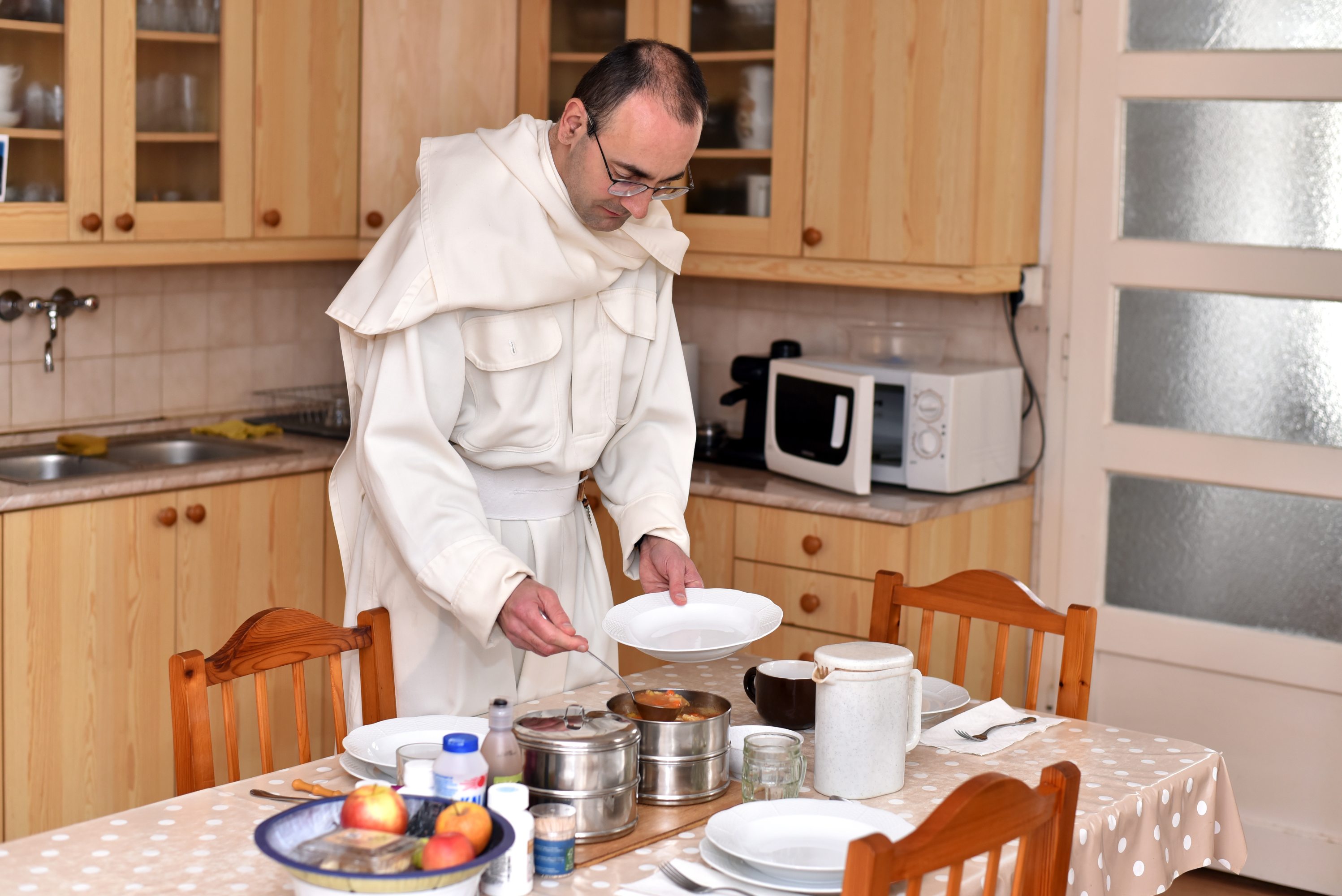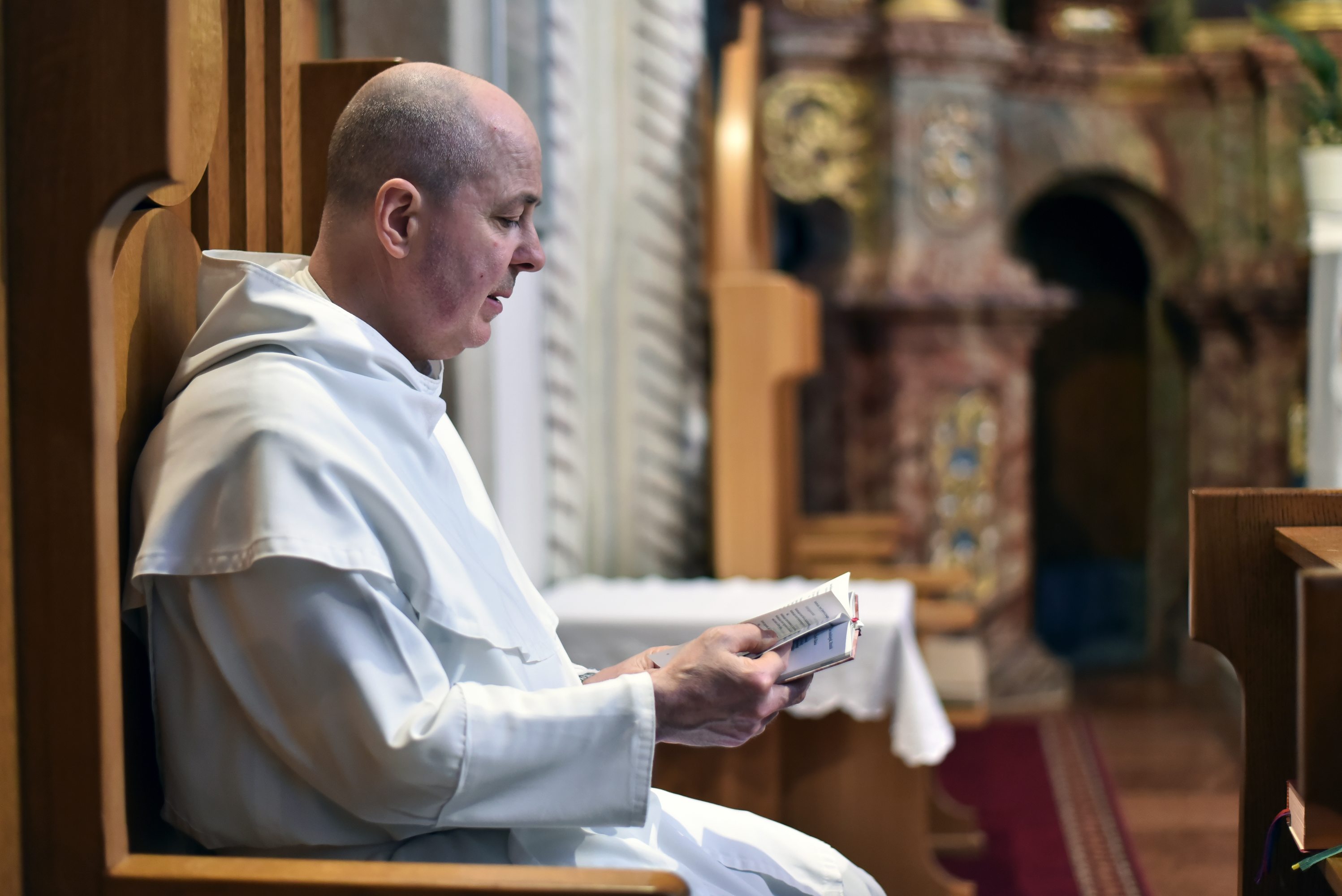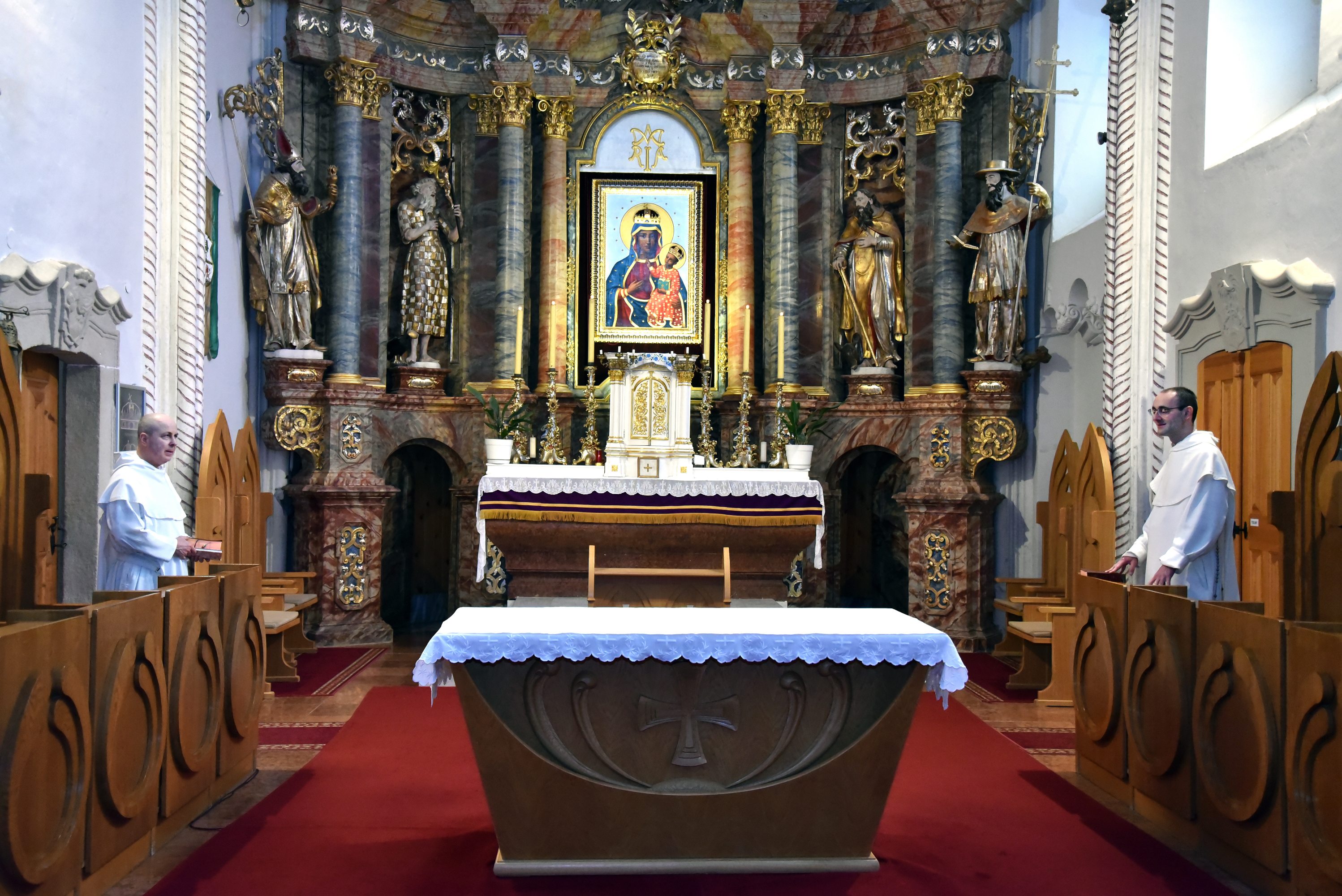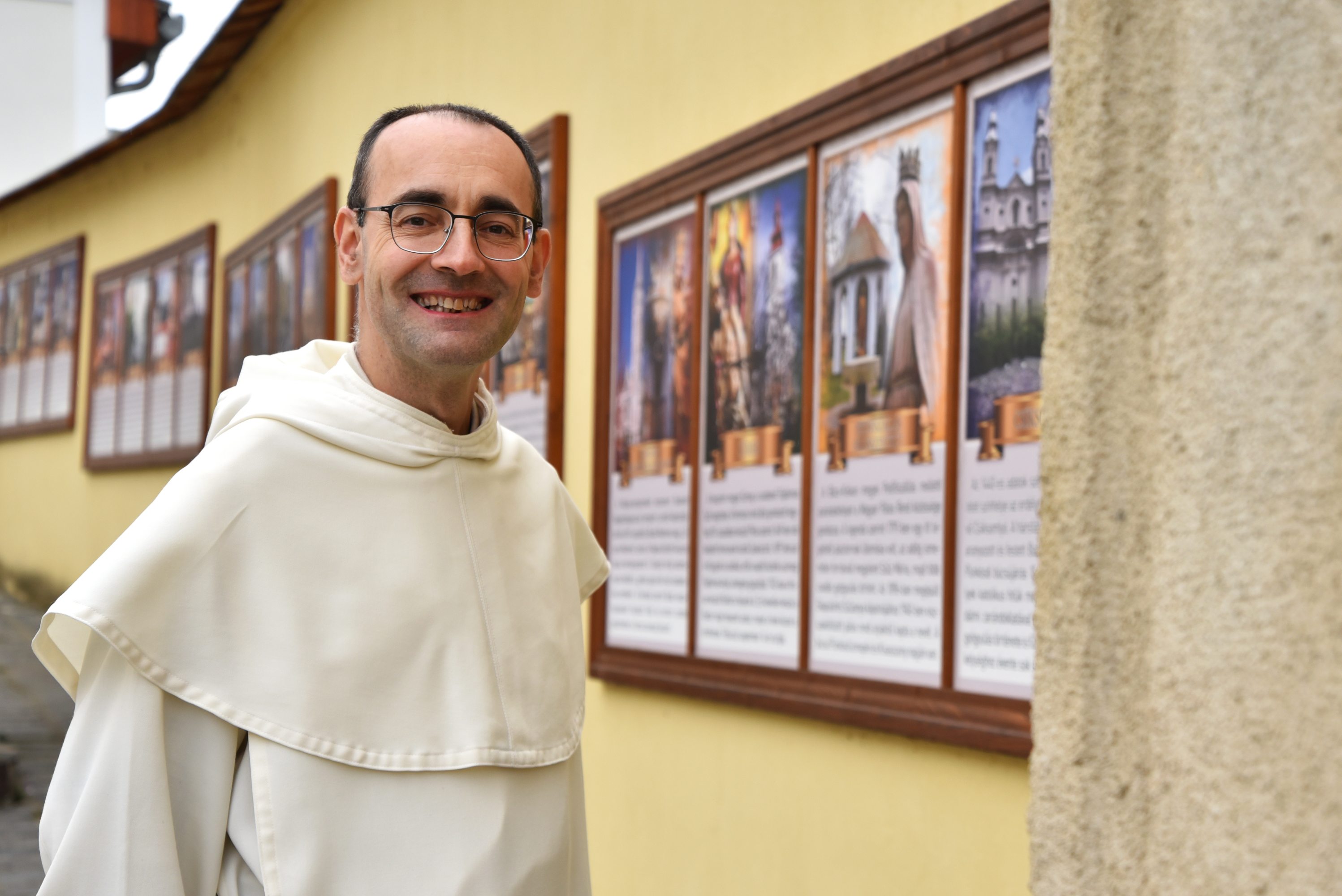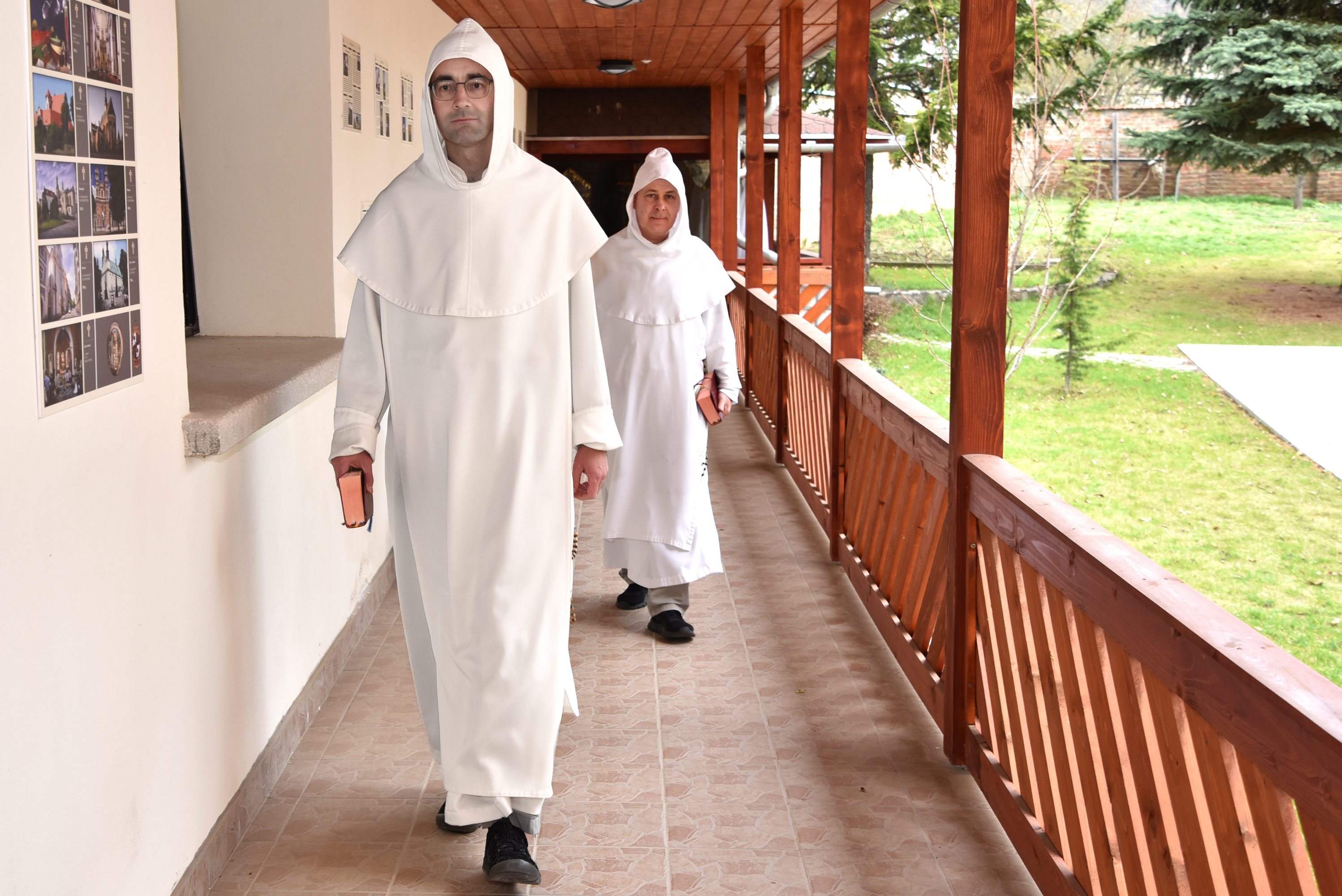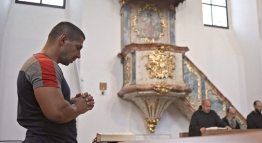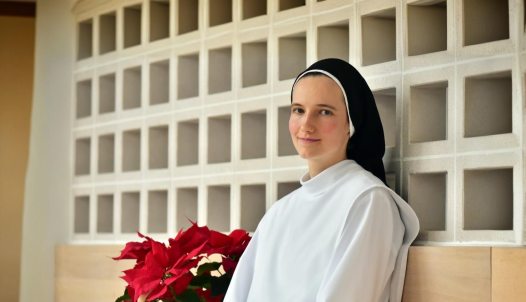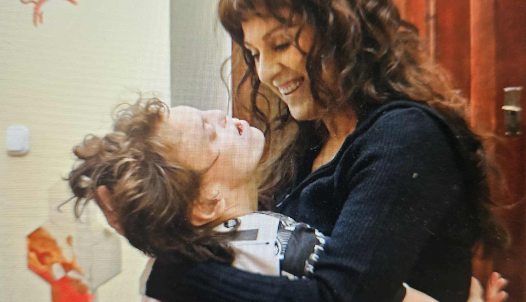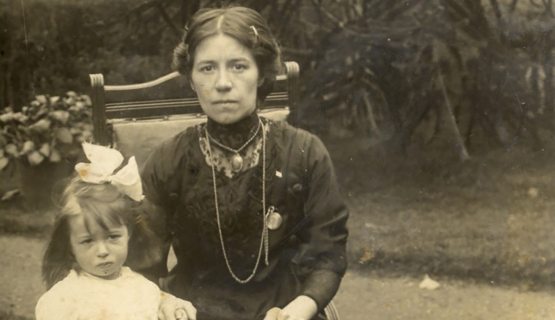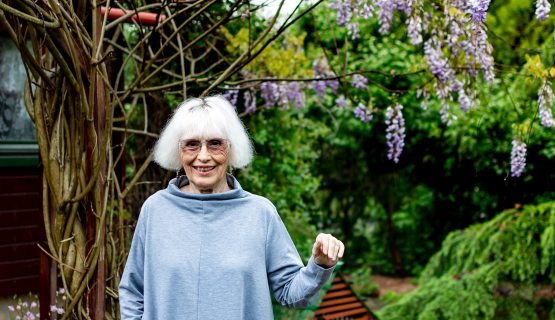“I enjoy being a monk because I have dedicated my life to the one I love and who loves me.”
What makes someone want to become a Pauline monk? What is necessary to choose this vocation? Can a monk be in love? What do they eat, do they have hobbies, are they bored? Why do people like men who wear the habit? These are the questions we sought to find answers to when we visited Márianosztra, north of the capital, where we followed the day of two monks of the Order of Saint Paul the First Hermit.
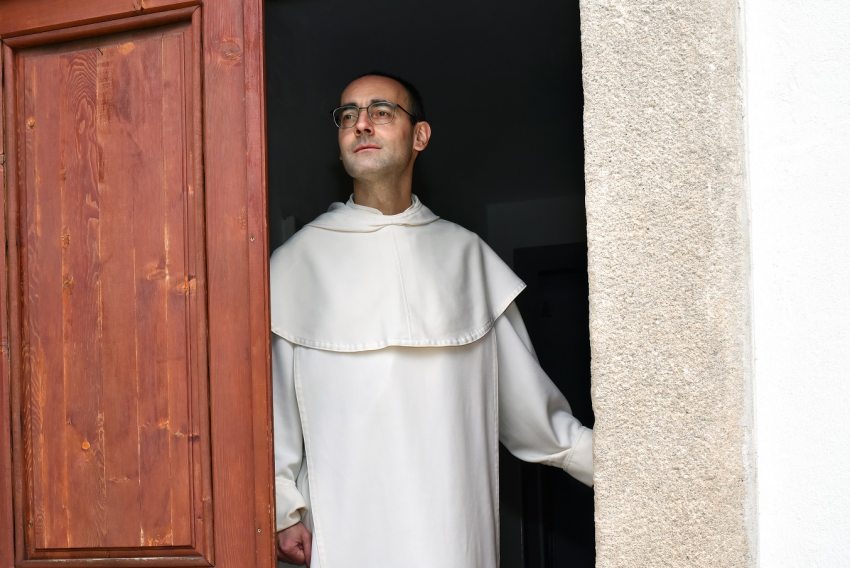
It’s seven o'clock in the morning. We got up at about the same time, at half past five, only I was in Budapest, the Pauline Fathers - Father András and Father János - in Márianosztra. As I learn, within the monastic order there might be differences as to how life is organized, but daily routine is mostly the same. While offering me coffee, Father János recalls that when he entered the order, the monastery in Pécs still had an "alarm man" assigned each week, who would wake the others by knocking on their room doors. They would call out "Ave Maria", to which the response would be the same, indicating that the other one had woken up.
Their day began at six in the morning when they met in the chapel for nearly an hour of prayer. At this time, they say a Lectio Divina and contemplate quietly for half an hour. There is no set topic, as the point of this form of prayer is that God is at its center. The monks do not "talk" to God, but think about Him, and meditate on Him. "It's like when you feed yourself: you put a bite in your mouth, chew it, swallow it and digest it", Father János uses an analogy. He adds that because there is so much information flowing through one's mind, it is necessary to stop at what is important and relevant.
The end of contemplation is the truth that is incorporated into our lives and becomes part of us, like food, so we become more of it.
We also can contemplate, he advises, and you don’t need to be a monk for that. To take an example: if someone is often late for work, it's worth taking a moment to reflect. What's behind the tardiness? What can you do about it?
After the morning prayer, Father János, as part of his service, will celebrate Mass for the congregation of Mariánostra in the church next to the monastery. Father András, meanwhile, is also celebrating a Mass in the chapel.
At the end of the liturgy, breakfast is in the schedule, but as we saw it, there is nothing special about it, the monks eat the same as we do: rolls, butter, sausages, vegetables and fruit. Some of the food is provided by the monks themselves, some is donated by the congregation. The people of the village love the monks, indeed.
People who dedicate their lives to God
And why do they like them? According to Father János, on the one hand, it is because of their service, for people have a need to meet God, and they can get their intellectual and spiritual nourishment from the Church, in our case from the monks. For this they are grateful. "The other reason is simple: when people see someone dedicating his life to a noble cause, or to God directly, they respect him and stand by him," says Father András.
He thinks that people have a desire for good, are happy about it, and connect to it. At the same time he says, it feels good to have people standing by their side, but that's not why they do it.
If they were monks for that reason only, people would feel that, and they would not support them.
Mornings and afternoons are the "busy" times in the life of the monks when they perform their spiritual and physical tasks. What does this actually mean? They clean, do the monastery chores, keep the pilgrims' quarters tidy, and run errands.
I walk with Father János to the neighbouring prison, where he ministers once a week. When he is done with his work, Father András joins us and we walk together through the small courtyard between the monastery and the church to God's house, where we pray together. Their activities are interrupted only by lunch, before and after the meal they pray, of course. Lunch is brought from the prison, where they subscribe for the whole week. It is easier for them, whereas in other monasteries the monks may cook for themselves.
Getting up early, doing a lot, praying often, and being with God are all loving tasks, but the fundamental question remains: why does one become a monk? "The essence of being a monk is to make a decision and dedicate one's life to God," says Father András, the prior, after lunch.
Who can become a monk?
If you want to become a Pauline Father, you have to knock on the door of the head of the Hungarian province in the monastery of Pécs. During an interview, the Provincial Superior will judge whether the candidate is mature enough and has the right motivation. It's worth applying at a young age, and of course older people are not excluded from becoming a monk, but it should be borne in mind that the older someone is, the harder it is for them to change. Once qualified, the candidate can start his postulate period, move into one of the five monasteries and, after the one-year postulate life, the Provincial Superior, in consultation with the monks of the monastery, will decide whether the candidate is suitable for monastic life. Then the novitiate, the actual training in religious history, spirituality and prayer, can begin. Here the schedule is tighter. It is interesting to note that, for the moment, the training takes place in Poland, in Polish. At the end of the novitiate, the novice takes vows for a year. It is still not forever, it is the last period when, on reflection, he can still leave the monastic life. The candidate can be ordained to be a monk after about 4-6 years.
”You can put up with a love laughingly”
Since the 13th century, the vocation of the Pauline Fathers has been the same, says Father András, because vocation is essentially marriage to God. But their daily life has changed, in that today's man is physically weaker, less able to endure asceticism and fasting, and more demanding, which means he has adapted to the demands of the times.
Their regulations are "moderately" strict. But what is strict? As we have seen, they live to a disciplined schedule. The monks are not idle; Father János, for example, was last bored at the age of 16, and he often goes on excursions or reads the Bible. There is always something to do, and there are a lot of books they don’t have time for.
They may also have hobbies, Father János likes photography, astronomy, hiking, and cycling, but there are also some monks in the order who ride motorbikes. The Regula does not forbid a monk from owning binoculars or collecting stamps, although they do not usually spend money on expensive items.
At 6 pm, it is time for dinner, and it is common to have a modest meal with leftovers from lunch or to eat cold. Evening prayers take place in the tiny chapel of the cloister, an area closed to outsiders. But for the sake of the readers of the Képmás, this time the two monks waive the rule and allow me to pray with them.
How to pray?
People often think that prayer consists of the Lord's Prayer or the Creed, but the Pauline monks point out that this is only the surface. Because prayer is not a recital of prayers, it is an encounter, a communion with God. The prayers, and the psalm, all help to be with Him. It is possible to pray without words, or simply to be silent, to contemplate. This is what one can immerse oneself in. Or you can ask, express your gratitude, and give thanks. We can also say a prayer of sorrow when we are confronted with our sins. By apologizing, one also gives one's burden to God. He is freed. He is cleansed because God is merciful and forgiving. And worship is specifically about delighting in God. "I could compare it to the sunset: when we see it, no one tells us to marvel at how beautiful it is, it bursts out of us involuntarily," Father János gives an example.
Once hermits, the Pauline Fathers have kept the notion of being a hermit by living in separate cells, so that each of them has a little world of his own where he can be alone with God. After evening prayers, they no longer talk, they all retire, they don't disturb each other, and they devote their time to God until bedtime. They often go to church and pray alone in the silence of the evening. The Silentium (silence) lasts from 8 pm - but this varies from monastery to monastery - until morning. Until then, however, I'd like to learn more about being a monk, so I continue my conversation with Father János in the dining room. I ask questions timidly as he stirs his herbal tea.
- What happens when a monk falls in love?
- It will pass... The primary question is always: who is the one I want to love?
- Have you ever fallen in love?
- Of course. It brought freshness into my life, but I knew it wasn't my path.
When I said to myself how beautiful she was, I immediately thought, "My God, how beautiful are You who created her!"
If you live in communion with God, you can put up with love laughingly. When we become emotionally close to someone, we quickly remember that true love is in the relationship with the Lord. And also: how nice that this "relationship" is costing me something right now.
- What do you mean?
- My attachment to God is not a free feeling dropped in my lap, but it costs me some kind of sacrifice, some kind of renunciation. It is good to be a monk because I have dedicated my life to the one I love and who loves me.
- According to this, everyone should be a monk.
- You know what's interesting? Everybody will be one day. Because Jesus says that when we die and go to Heaven, no one will marry or be married, we will live like angels of the Lord. The monastic life is a pre-reception of this.
- Still… few people become monks, the laymen are more numerous.
- It is a grace, an invitation.
It is not something we figure out for ourselves, and it is not something we do on our own, but the Spirit of God is working in us.
He caught hold of me and called me to become a monk. I could choose to accept or not accept His call.
- Are more invited than will eventually become monks?
– Definitely.
- Does it take great dedication to become a monk?
- It takes such a great one that it is not in the world, and it is not in man. This is what we get. From above.
- How do you remember your calling?
- It was a long process in my life. The story didn't even start with the call, but with my conversion from a Catholic, religious man to a believer.
I had heard about God in church for nineteen years, I had prayed to Him when I experienced for the first time in a Eucharistic adoration that He was here: Jesus is alive.
For some it is a longer transition, for others, it is sudden, as in the case of St Paul. From that moment on, my life has been different, I live with Jesus Christ, who began to lead me. I have had many enlightenment moments that have shown me to become a priest. It was not an easy decision because - and I come back to your first question - I was in love, so I said to the Lord: I will become a priest, but only if You want me to. And the Lord showed me that this was indeed the vocation he was calling me to. I surrendered. I experienced great joy, even though I had broken up with that girl.
A winding road leads to the No. 12 main road along the Danube. The road surface is not perfect everywhere either, so I drive slowly in the twilight. It's not just the quality of the road: my thoughts return to Father Amdrás and his spiritual guidance accompanies me for a long time.
